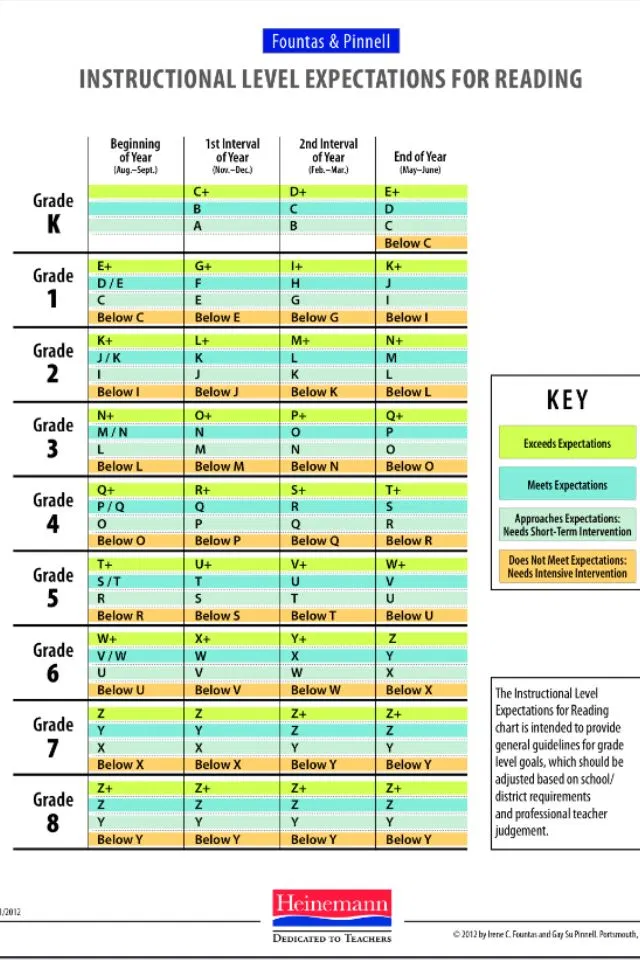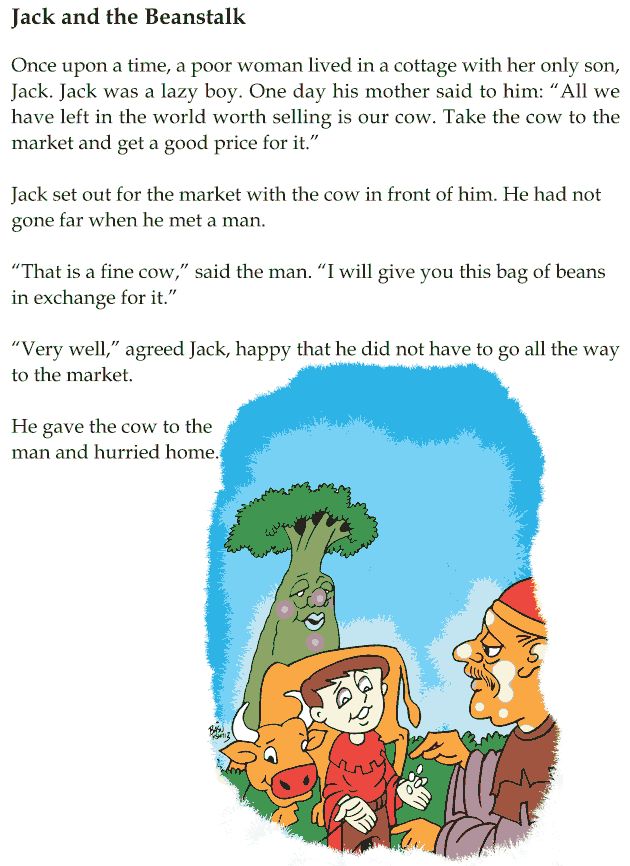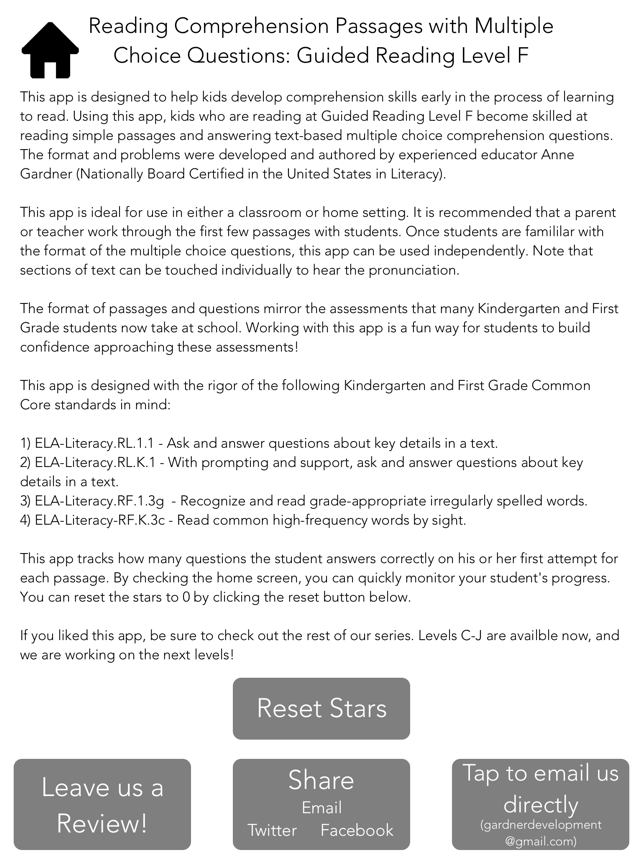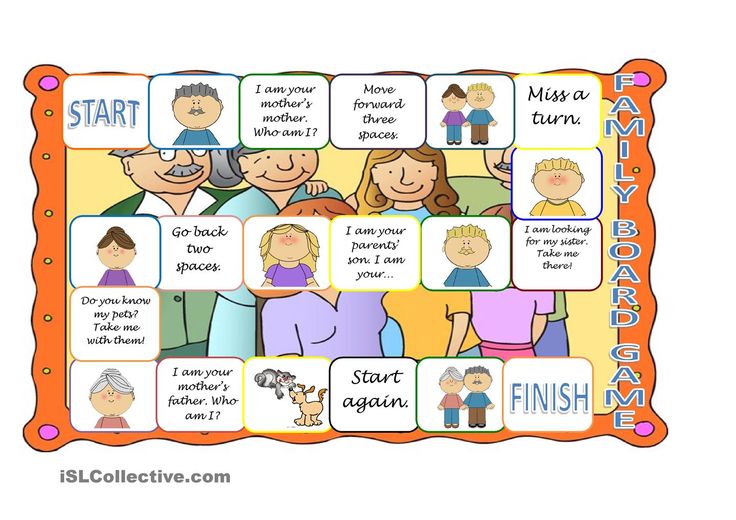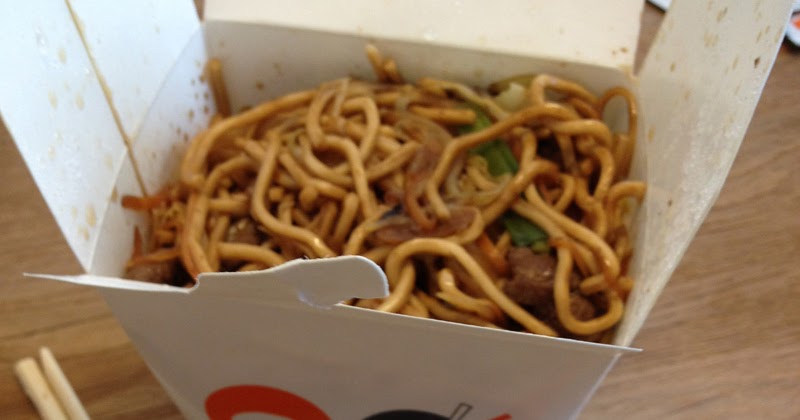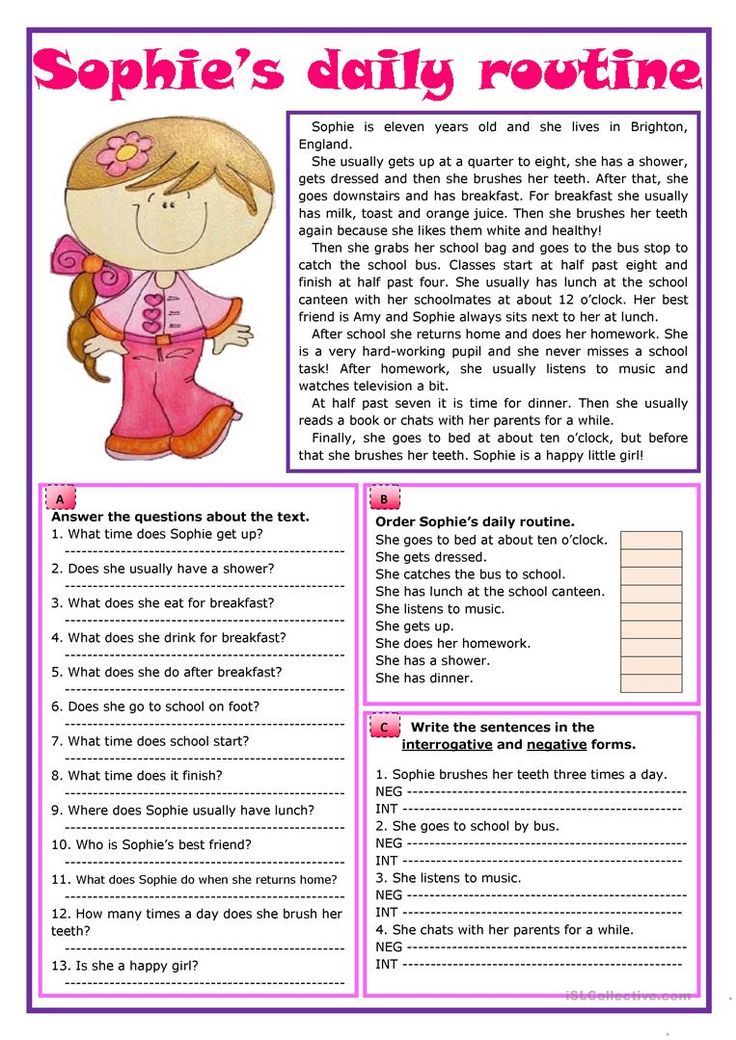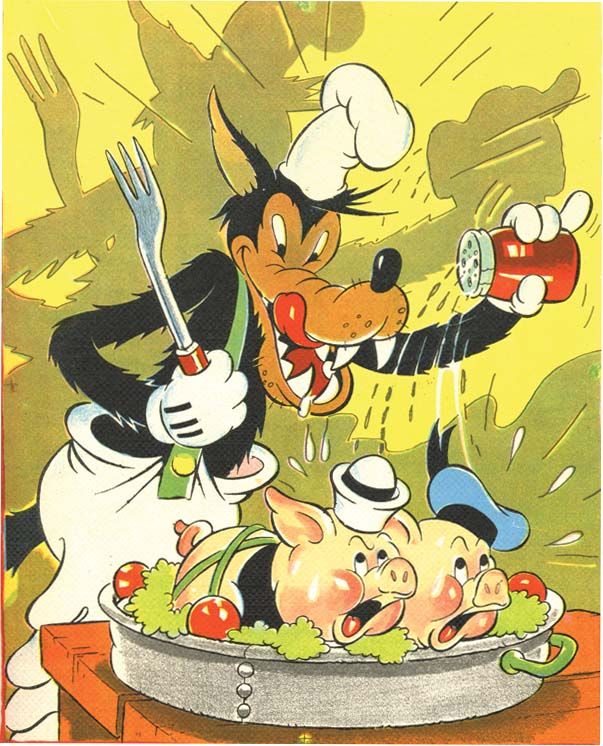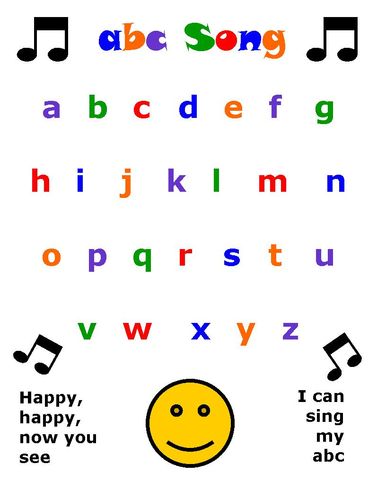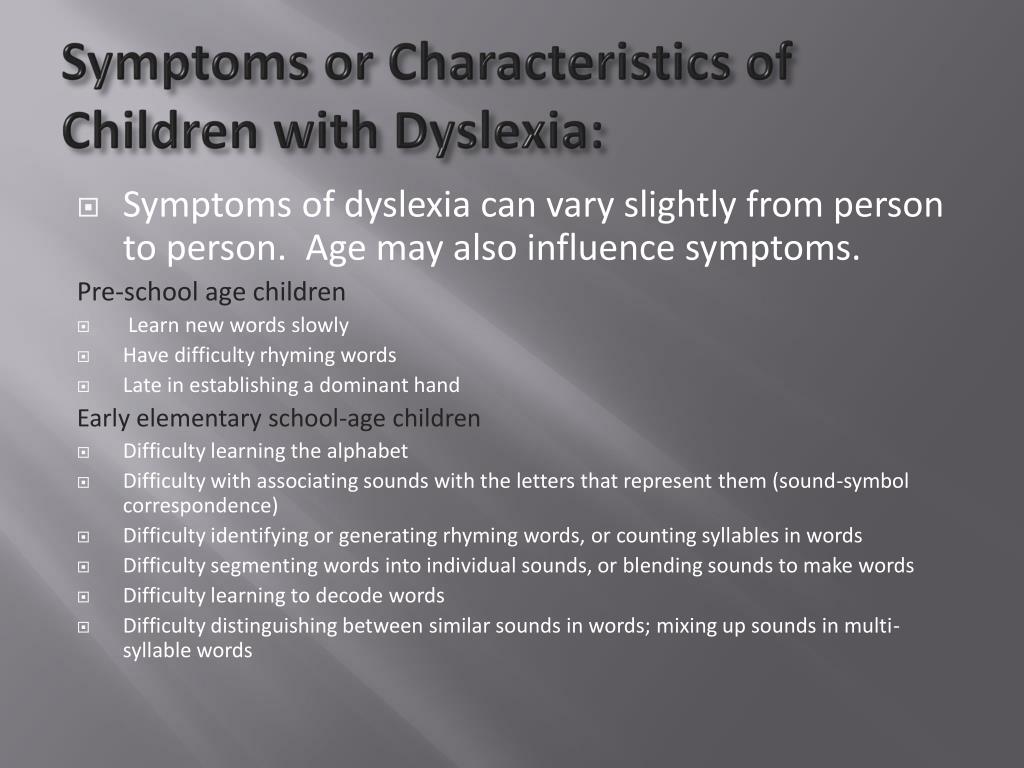Out compound words
25 Pairs of Compound Nouns and Verb Phrases Ending in "Out"
By Mark Nichol
Numerous idioms ending with the word out exist, but only a select group serve (in open form) both as verb phrases and (in hyphenated or closed form) as compound nouns; “tune out,” for example, describes the act of ignoring sensory stimuli, but one does not refer to a tune-out as an instance of such behavior, though one can, for example, either bail out or experience a bailout. These pairs, and their meanings (with occasional divergence of meaning between a verb phrase and the similar-looking compound noun—and sometimes one form applies only to one or some but not all senses of the other), are listed below.
1a. bail out: scoop water out of a leaking boat, parachute from an aircraft, depart from a difficult situation, or provide financial assistance to a person or a company
1b. bailout: financial assistance to a company
2a. black out: lose consciousness
2b. blackout: a loss of consciousness, or a power outage
3a. blow out: extinguish or cause loss of air
3b. blowout: a sudden loss of air from a tire, a large celebration, or a decisive victory in sports
4a. break out: develop a rash or similar condition or suddenly perspire, or escape from a condition (such as spate of bad luck) or a situation (such as confinement)
4b. breakout: an escape, especially from jail, or an adjective referring to a sudden comparative success
5a. burn out: suffer from stress exhaustion
5b. burnout: the condition of being exhausted by stress, or a person suffering this condition, or a period during which a jet or rocket engine stops working because it is deprived of fuel
6a. call out: announce, summon to act, challenge someone to a duel, or announce a labor strike
6b.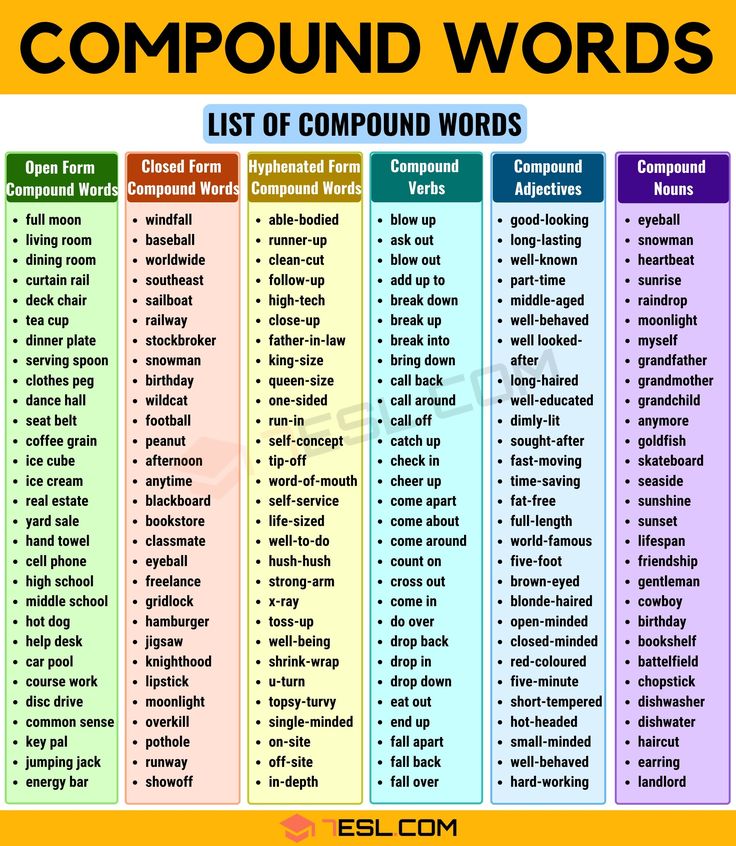 callout: an instance of calling out, or a detail or excerpt adjacent to an article or image in a print or online publication or a reference to another piece of content
callout: an instance of calling out, or a detail or excerpt adjacent to an article or image in a print or online publication or a reference to another piece of content
7a. camp out: go on a camping trip
7b. campout: a camping trip
8a. carry out: bring something outside, or accomplish, execute, or continue to conclusion
8b. carryout: food prepared in a restaurant to be delivered to or taken by customers to eat elsewhere, or a restaurant that prepares carryout
9a. cash out: convert noncash assets to cash
9b. cash-out: an act of converting noncash assets to cash
10a. check out: investigate or look at, pay for goods in a store, or leave a place of lodging; also, slang for die or that refers to ceasing to pay attention or make an effort
10b. checkout: the location for paying for goods in a store, or leaving a place of lodging or the deadline for doing so
11a.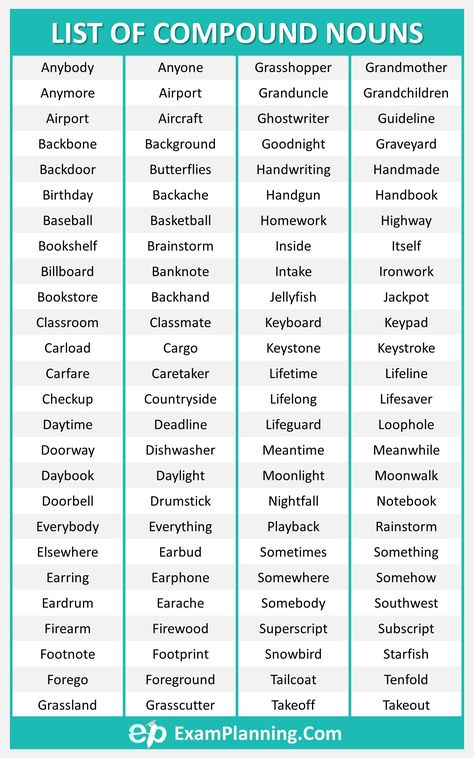 clean out: dispose of unwanted items, or use up all available funds or steal all items available
clean out: dispose of unwanted items, or use up all available funds or steal all items available
11b. cleanout: an act of cleaning out or disposing of unwanted items, or a covered opening for cleaning out an enclosed space
12a. close out: dispose of or sell, or conclude or discontinue, or exclude or preclude
12b. closeout: a sale to clear inventory or before closing a store, or a product being sold at such a sale
13a. cook out: dissipate by cooking (as in alcohol in cooking wine)
13b. cookout: preparation and serving of a meal outdoors
14a. cop out: avoid or neglect
14b. copout: an act of avoidance or neglect
15a. cross out: mark a line or X through a mistake
15b. crossout: an act of marking a mistake
16a. cut out: form a shape from a piece of something by cutting from a larger piece, defraud or deprive, erode or put an end to, disconnect or cause to no longer operate, or leave quickly or take the place of or separate, or used in the phrase “(one) has/have (one’s) work cut out for (one)” to express that someone has a difficult task to complete
16b. cutout: a piece of something cut out from a larger piece
cutout: a piece of something cut out from a larger piece
17a. die out: become extinct
17b. die-out: an instance of extinction
18a. drop out: cease enrollment at or participation in something
18b. dropout: on who ceases enrollment at or participation in something
19a. fall out: plunge from an enclosed object or space into the open
19b. fallout: bad effect or result, or radioactive particles from a nuclear explosion that fall through the atmosphere
20a. gross out: disgust, insult, or offend with something unpleasant
20b. gross-out: something disgusting, or an instance of being disgusted
21a. knock out: render unconscious with a blow
21b. knockout: a blow that renders the victim unconscious, or slang for a particularly attractive woman
22a. roll out: introduce or release a product or service, or, as a quarterback, run to either side to complete a play
22b.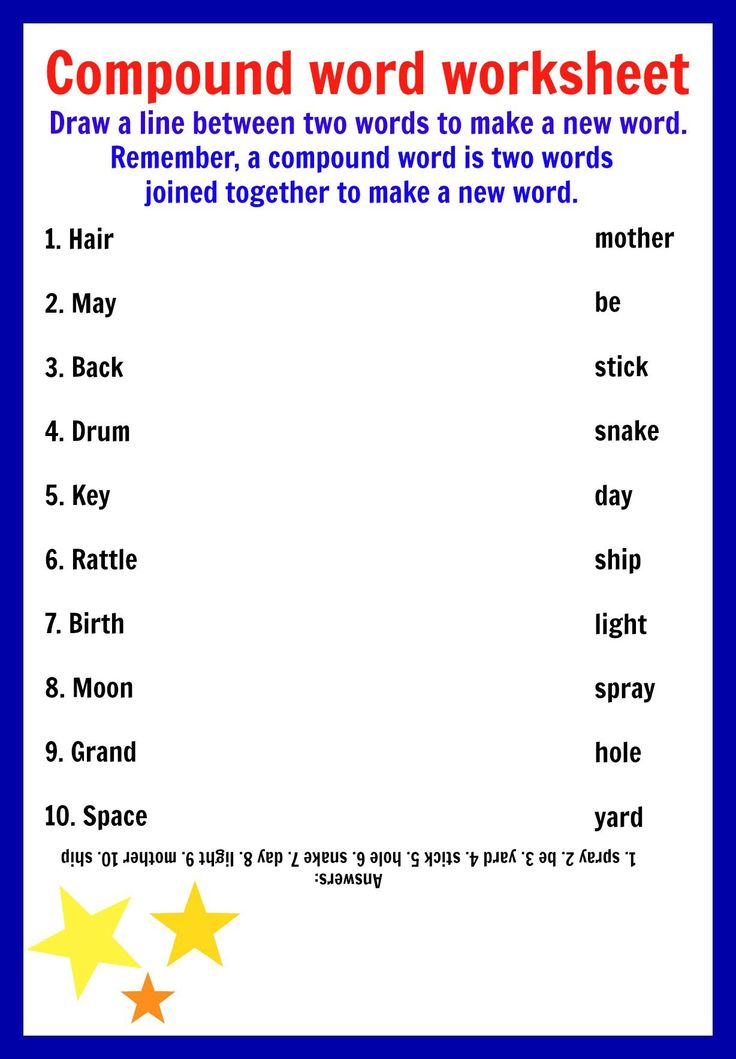 rollout: an introduction or release of a product or service, or a football play in which the quarterback moves to either side before passing the ball or running with it
rollout: an introduction or release of a product or service, or a football play in which the quarterback moves to either side before passing the ball or running with it
23a. shoot out: eject from something
23b. shootout: a gun battle, or a conflict
24a. time out: run out of time
24b. time-out: in sports, a pause in a game called by one of the teams or, when a game is televised, by the network for a commercial; also, a period during which a misbehaving child is isolated
25a. turn out: attend an event, or said in reference to the result of an action
25b. turnout: the number of people who attend an event, or a space for vehicles to pull off to the side of the road, a clearing out or a yield, or a set of equipment or a manner of dress (also, in British English, a labor strike or a striker)
Want to improve your English in five minutes a day? Get a subscription and start receiving our writing tips and exercises daily!
Keep learning! Browse the Expressions category, check our popular posts, or choose a related post below:
- Regarding Re:
- How to Play HQ Words: Cheats, Tips and Tricks
- What’s the Best Way to Refer to a Romantic Partner?
Stop making those embarrassing mistakes! Subscribe to Daily Writing Tips today!
- You will improve your English in only 5 minutes per day, guaranteed!
- Subscribers get access to our archives with 800+ interactive exercises!
- You'll also get three bonus ebooks completely free!
Try It Free Now
Examples of Compound Words by Type
DESCRIPTION
Grandmother With Compound Word Example
SOURCE
Grandmother: Natalia Kosheleva / iStock / Getty Images Plus / Background: Tolchik / iStock / Getty Images Plus
PERMISSION
Used under Getty Images license
Compound words are an easy way to add interest to your writing.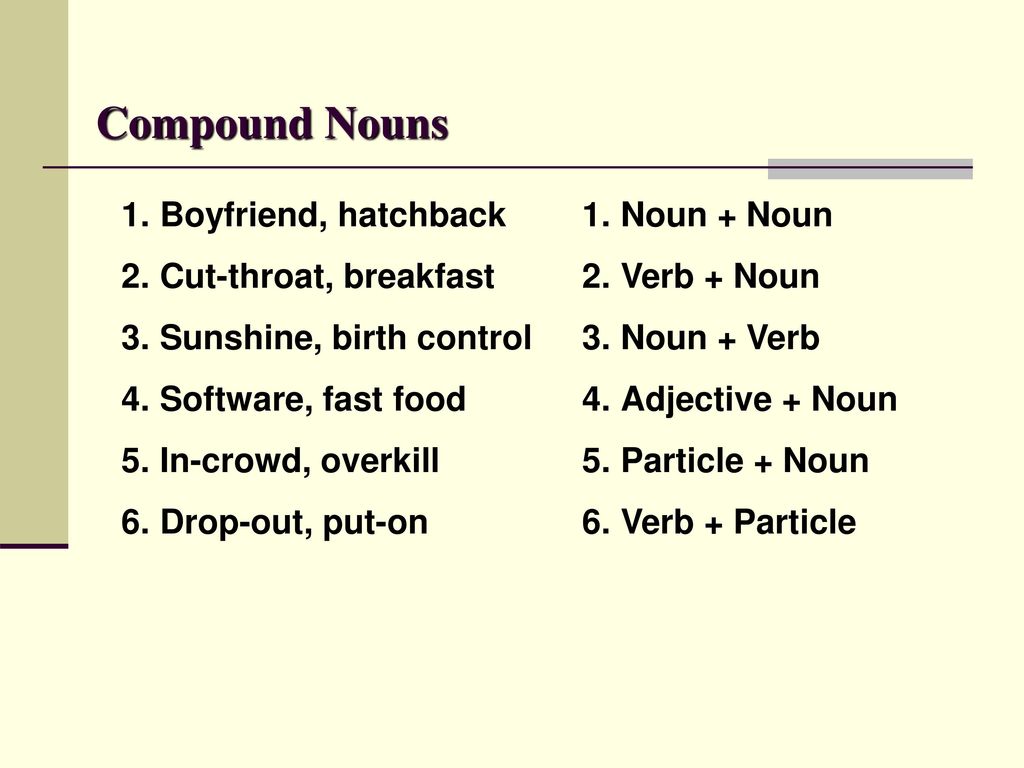 By combining two ideas in one word, you can quickly provide all the information needed. These examples of compounds will show you how it's done.
By combining two ideas in one word, you can quickly provide all the information needed. These examples of compounds will show you how it's done.
What Are Compound Words?
A compound word is formed when two words are combined to make a new word. It is one of the ways in which the English language is flexible and always changing, as compound words allow people to create new words as the need arises.
For example, you might use “in” and “side” to create the compound word “inside”.
We should play inside today.
The words “carry” and “over” can make the compound word “carry over”.
We can carry over that surplus into the next sprint.
As you can see, compound words can come in different varieties. Explore examples of each.
Examples of Compound Words
When it comes to compound words, there are three different types that are important: closed-form, open-form, and hyphenated. Dive into how each type of compound word is different.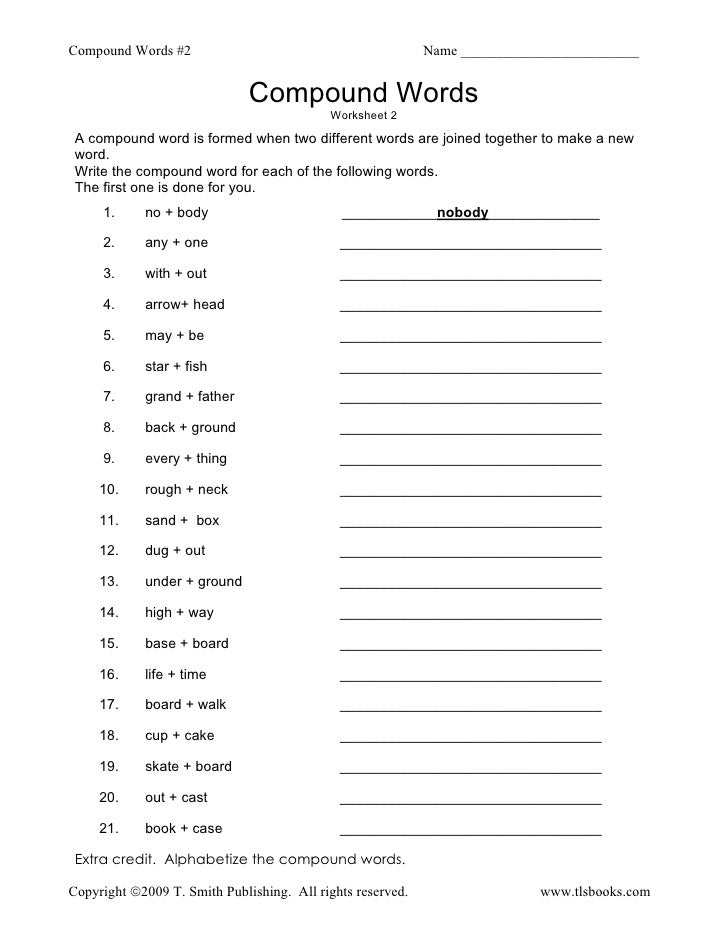
Closed-Form Compound Word Examples
Closed compound words are formed when two fully independent, unique words are combined to create a new word. For example, you would combine “grand” and “mother” to create the closed-form word “grandmother”. In a sentence, this would look like, “My grandmother is coming over.” These are the most common types of compound words.
For example:
- bullfrog
- snowball
- mailbox
- grandmother
- railroad
- sometimes
- inside
- upstream
- basketball
- anybody
- outside
- cannot
- skateboard
- everything
- schoolhouse
- grasshopper
- sunflower
- moonlight
Open Compound Word Examples
Open compound words are formed when two words remain separate on the page but are used together to create a new idea with a specific meaning. For example, “attorney” and “general” are used to form the open compound word “attorney general”. You could see this in the sentence, “The attorney general holds the power in legal matters.” Other examples of open compounds include:
You could see this in the sentence, “The attorney general holds the power in legal matters.” Other examples of open compounds include:
- peanut butter
- Boy Scouts
- no one
- ice cream
- real estate
- high school
- living room
- sweet tooth
- hot dog
- grand jury
- post office
- full moon
- half sister
- cave in
Hyphenated Compound Word Examples
Hyphenated compound words are formed when two separate words are joined together by a hyphen. Examples of hyphenated compound words include:
- two-fold
- check-in
- merry-go-round
- father-in-law
- seventy-two
- long-term
- up-to-date
- mother-in-law
- one-half
- over-the-counter
Note that hyphenated compound words are most commonly used when the words being joined together are combined to form an adjective before a noun.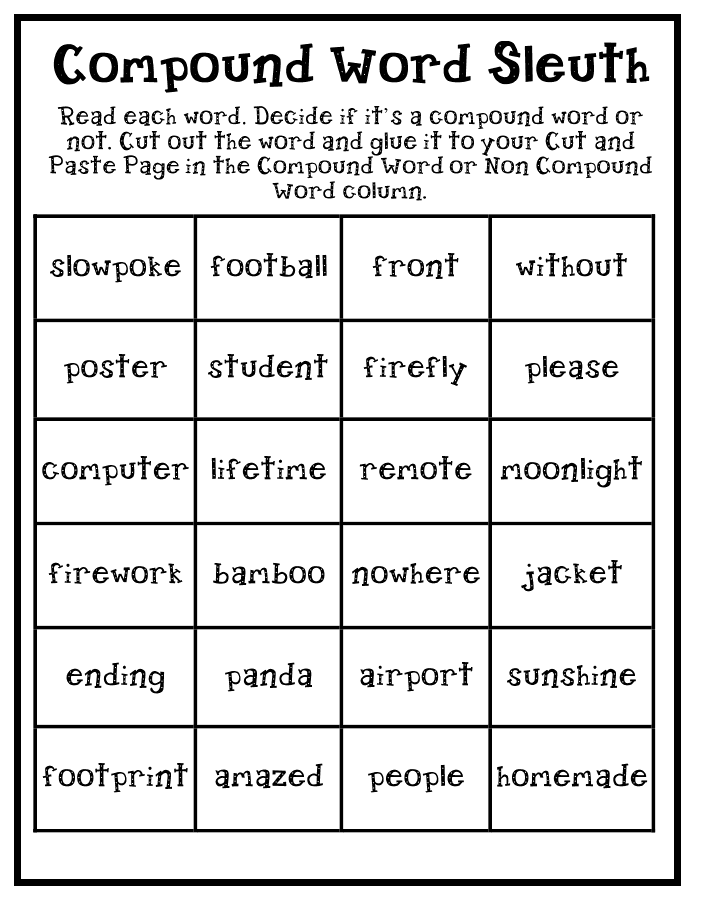 For example:
For example:
- forty-acre farm
- full-time worker
- on-campus housing
- state-of-the-art features
- family-run busines
However, these hyphenated compound words become open compounds when they are placed after the word they describe. For example:
- The farm has forty acres.
- The worker is full time.
- The housing is all on campus for freshman
- Its features are truly state of the art.
- The business is still family run.
Compound Words in Sentences
Now that you learned about the different types of compound words, see if you can find the compound words in the sentences below.
- My grandfather is coming home for the holidays.
- I really want a peanut butter and jelly sandwich.
- The real estate agent had to take a test to get her license.
- She is a part-time teacher.
- That is our full-time worker.
- I’m so tired of looking for on-campus housing.
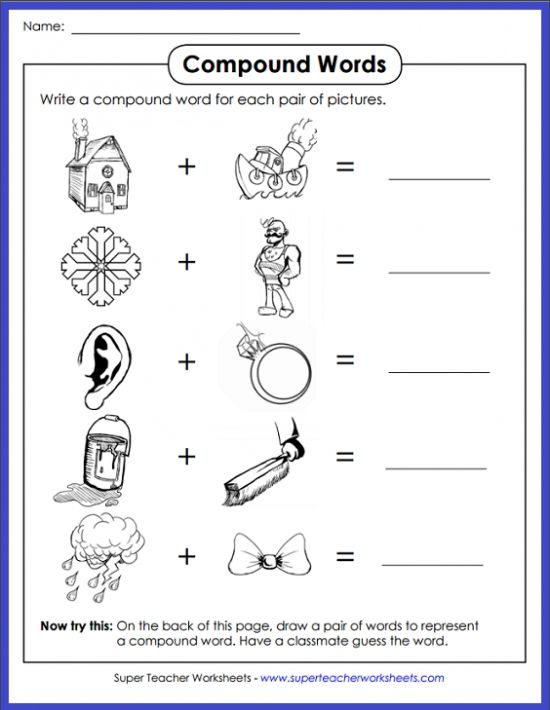
- He was seventy-two years old.
- Let’s go play some basketball
- Has anybody seen my binder?
If you have those down, try creating a few sentences using compound words that you create!
Compound the Reader's Interest
By adding compound words to your writing, you can make your ideas more interesting and descriptive for the reader. The addition of too many compounds can be messy, especially hyphenated compound words; so, be sure to use compound words wisely. Like any seasoning, they are best sprinkled throughout your writing instead of used in every line.
Now, that you have a grasp of compound words, you might want to dive into some compound sentence examples.
How to write difficult words that baffle many people
Russian is the largest and most widespread of the Slavic languages. Not surprisingly, many terms can be difficult to spell and pronounce. Try saying or writing the words "internationalize", "self-defense" or "whirlpool" quickly.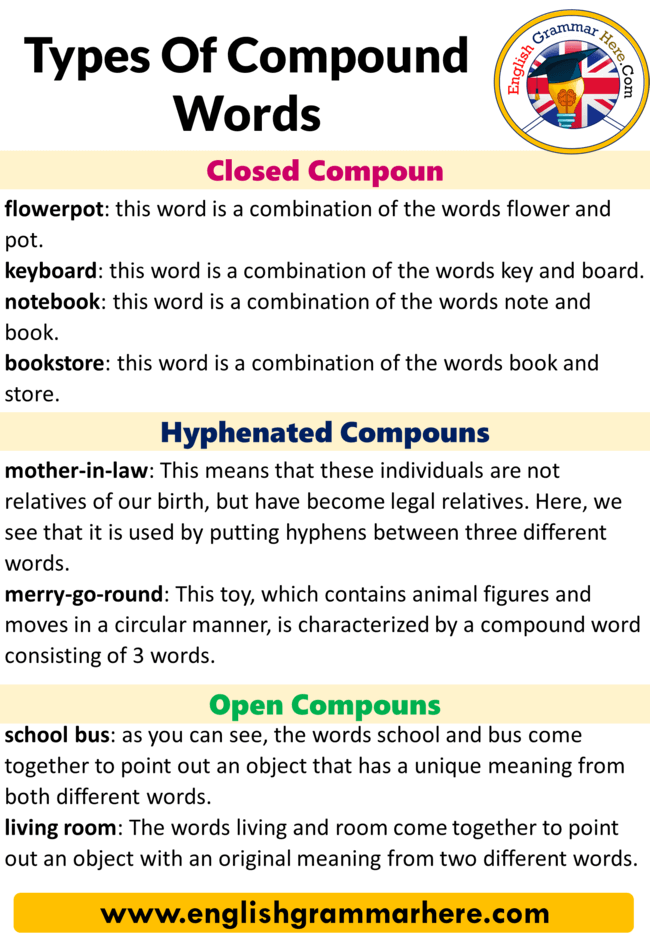 Most likely, the first time you will not be able to quickly read them, but do not rush to get upset. Use simple tips that will help you speak fluently and beautifully.
Most likely, the first time you will not be able to quickly read them, but do not rush to get upset. Use simple tips that will help you speak fluently and beautifully.
A bit of theory. How do compound words appear?
Compound words are speech structures that have two or more roots in their morphological composition. New words are formed by adding existing words (excellency, eleventh grader), or borrowed from foreign languages (hot dog, deadline, networking). Compound words are formed as follows:
Morphological method. New words are formed on the basis of existing foundations by combining with various affixes, as well as using the connecting letters o, e and e, for example: helicopter, dried fruits, rockfall, water carrier, earthquake, sound combination, housewarming, chair-bed.
Syntactic way. New formations appear through the addition of independent words or the transition from one part of speech to another: forward looking, crazy, hairdresser, now, immediately.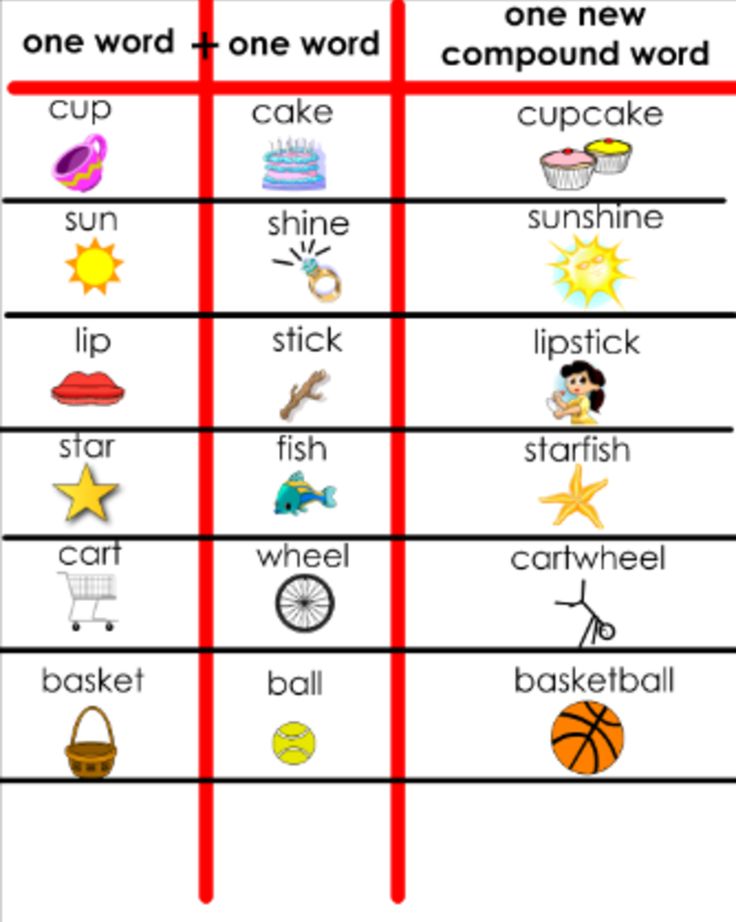
Words using foreign prefixes anti-, hyper-, super-, trans-, pan-, post-, sub-, super-, ultra-, extra- and others: infrastructure, anti-scientific, transcontinental, arch-reactionary, extraordinary, hyperactive , superintendent.
Foreign words. Increasingly, new words began to appear from other languages: outsourcing, know-how, price list, startup, freelancer, traffic, bestseller, blockbuster, image maker.
Advice 1. For the correct spelling or pronunciation of complex words, mentally determine the method of word formation, divide the speech structure into prefixes and roots, and slowly pronounce the word.
How to deal with stresses in compound words?
As a rule, people understand complex words not only as long speech constructions, but also words that are difficult to immediately emphasize: oil pipeline, petition, sorrel, carpenter, gas pipeline, marketing, management, blinds, rubber. Here you need to remember a few rules.
- If the term comes from English, then in most cases the stress will be on the first syllable or as in the original version in a foreign language: jeans, blender, hoodie, broker, rating, selfie.
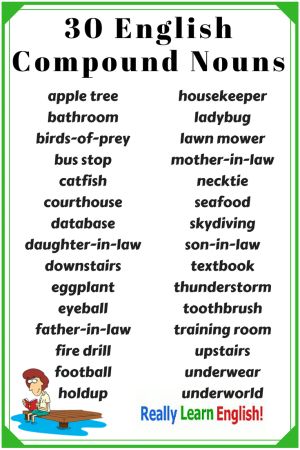 And in the French version, on the last syllable: lampshade, parter, fountain, chassis.
And in the French version, on the last syllable: lampshade, parter, fountain, chassis. - In compound words ending in meter, in the meaning of a measure of length, we always put the stress on -meter: kilometer, nanometer, micrometer.
- 3. In words ending in -wire, in the meaning of a device for transportation, we put the emphasis on the last syllable: gasoline pipeline, garbage pipeline, light pipeline. Exception: electrical wire.
- If the noun ends in -log, then the stress will also be on the last syllable: pledge, tax, obituary.
Advice 2. Get a file on your phone or laptop, create a vocabulary list for spelling complex words with highlighted stresses. It is important that the list is always at hand. Write down interesting terms that may be useful to you in your studies or at work. Go over the list daily to remember these words and easily pronounce them at any time.
The ability to correctly and beautifully express one's thoughts is a necessary skill for any profession: from a teacher, journalist, PR manager to a bartender, groomer or makeup artist.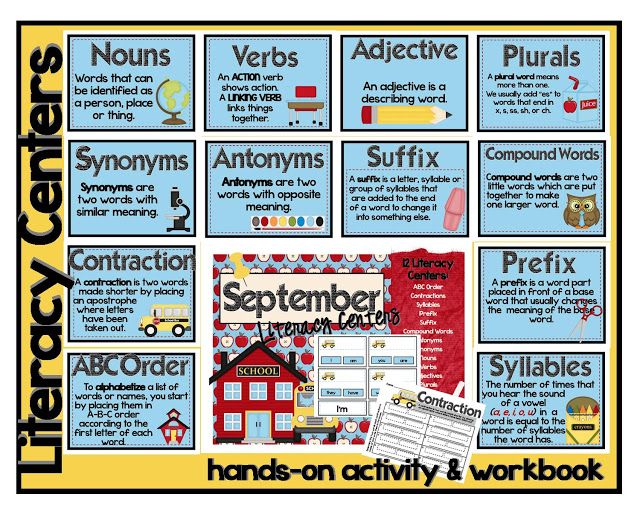 Therefore, it is important to develop this skill by replenishing your knowledge base with new terms. Find out what other basic skills exist and how well you master them. Follow the link https://rsv.ru/hard-skills to select the necessary basic skills and find out your level of knowledge.
Therefore, it is important to develop this skill by replenishing your knowledge base with new terms. Find out what other basic skills exist and how well you master them. Follow the link https://rsv.ru/hard-skills to select the necessary basic skills and find out your level of knowledge.
25 words that baffle many when writing
February 23, 2021Education
How to write complex words correctly and remain a literate person.
Share
0 You can listen to the article. If it's more convenient for you, turn on the podcast.
1. Traffic
In English, traffic is indeed spelled with a double consonant. However, when borrowing from a foreign language, the second letter is usually lost, which happened with the word “traffic”, so you should write it with only one “f”.
2. Future
The word "future" often gets the letter "u" by analogy with the word "next". But it is easily disassembled into the root bud- and the suffix -usch-. There is simply no place for an additional sign. If spelling is difficult, you can try to remember through the synonym "future". Still, even those who doubt very much will not raise their hand to write “the coming one”.
There is simply no place for an additional sign. If spelling is difficult, you can try to remember through the synonym "future". Still, even those who doubt very much will not raise their hand to write “the coming one”.
3. Offline
The word “offline”, like “offshore”, “offside”, close to it, lost a double consonant when they were entered into dictionaries, which is typical for borrowings. At the same time, if the spelling “offline” can still be explained by confusion with the original language, then the version “offline” is puzzling: in English, the word is also written without a hyphen.
Check 🧐
- TEST: Together, separate or hyphenated? Write 10 words without mistakes!
4. Rinses
If you're not talking to your washing machine, it's hard to imagine in what situation you might need the word "rinse". But just in case, it’s worth remembering that you need to correctly give out instructions with the word form “rinse”.
5.
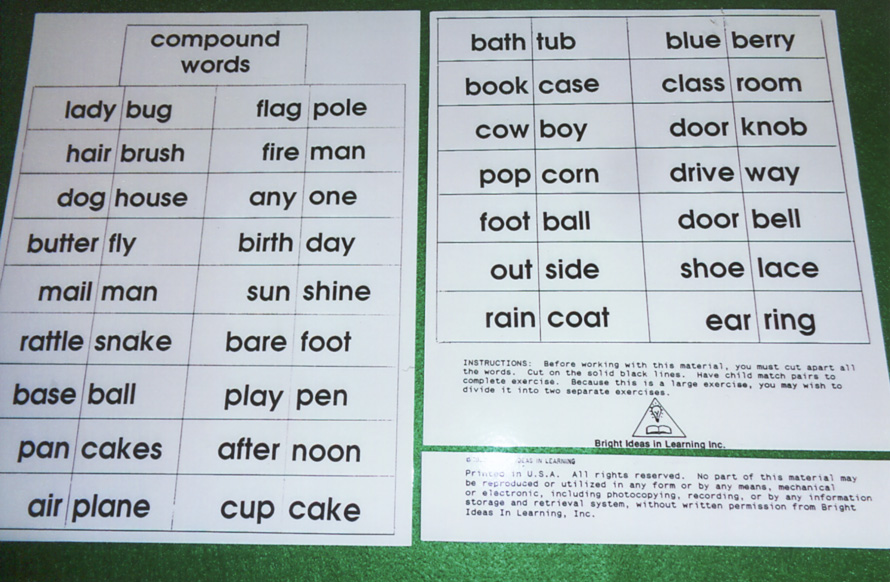 Producer
Producer Probably, the extra "s" is formed by analogy with the word "director". But in both Russian and English, “producer” is written without doubled consonants.
6. Come
The word has gone through many transformations. In old books, it can be found in the versions "come" and "come". Yes, and the analogy with "go" is clearly visible. However, in dictionaries it is fixed only in one form - "to come."
7. Grapefruit
No matter how much one would like to make "grapefruit" a full-fledged "fruit", this word is pronounced in the same way as in the language from which it was borrowed. Otherwise, the first part of the word would have to be Russified, but “grape fruit” does not sound very attractive.
8. Blogger
For foreign words that extort a second consonant, there is a rule: if there is a single-root word, then you should use only one letter from the double ones. A blogger maintains a blog, so he is not allowed to use extra letters.
9. Hardly
According to Vasmer's etymological dictionary, the invariable particle "hardly" comes from the word "row", it can be used as a test. And the “li” particle is always written separately, so do not be lazy to press the spacebar.
10. Imagine
Frankly speaking, the word “imagination” does not exist in the vast majority of dictionaries and literary Russian. But it has a certain semantic connotation and can look cute in colloquial speech. At the same time, one does not need to be a linguist to sob with bloody tears from the "vybrazhuli". So check "imagination" with the word "imagination" and spare other people's eyes.
11. Ice cream
If ice cream means a calorie bomb made from milk or cream, then you should always write one “n” in this word. This noun is formed from an imperfective verb, the letter in such cases is not doubled.
Fill in the letters 🎓
- QUIZ: How good are you at spelling double consonants?
12.
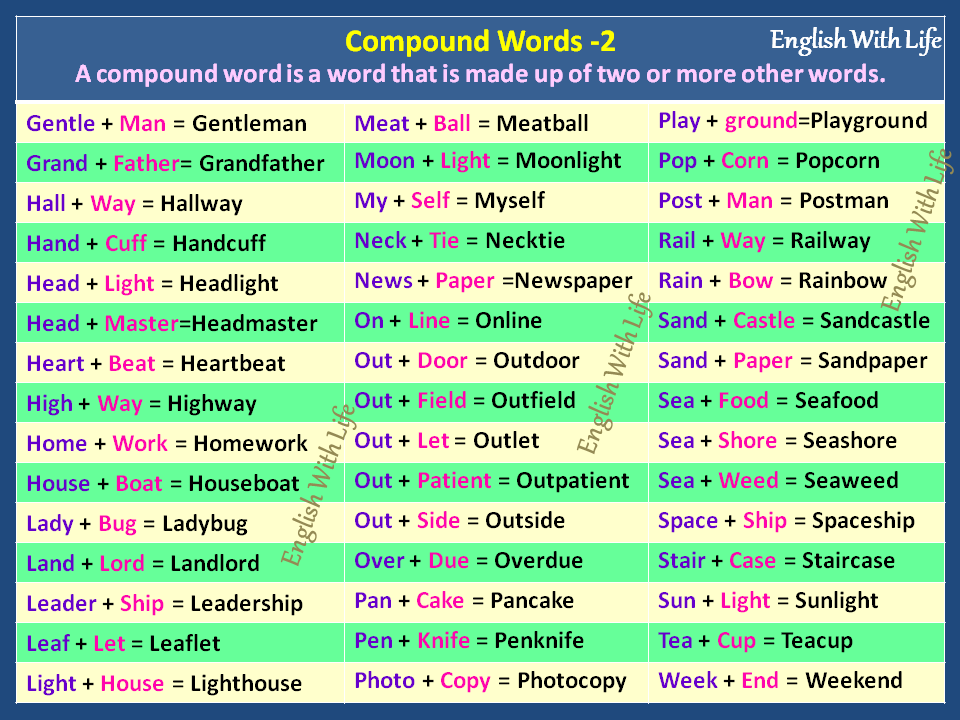 Cappuccino
Cappuccino In Italian, from which the name of coffee with milk foam comes, the word cappuccino was generously sprinkled with consonants. But in Russian, none of them is doubled. Therefore, you can nod understandingly when once again instead of cappuccino on the menu you will meet “cappuccino” or “cappuccino”.
13. Mosaic
Whether it's a picture of tightly packed pieces of glass or a children's puzzle, forget about bunnies and write correctly: mosaic.
14. Handwriting
The insidious "d" tries to fit in here, but it has no place in the word "handwriting". Because when you sit down to write a text by hand, you do not intend to emphasize anything, but rather to underline.
15. Bulletin
“Bulletin” is a dictionary word, so you have to memorize it. The fact that it came from the Latin bulla - “ball”, “seal” can help in this.
16. Legitimacy
There are many options for manipulating the word "legitimacy", but it's better not to do this and just remember how it is spelled.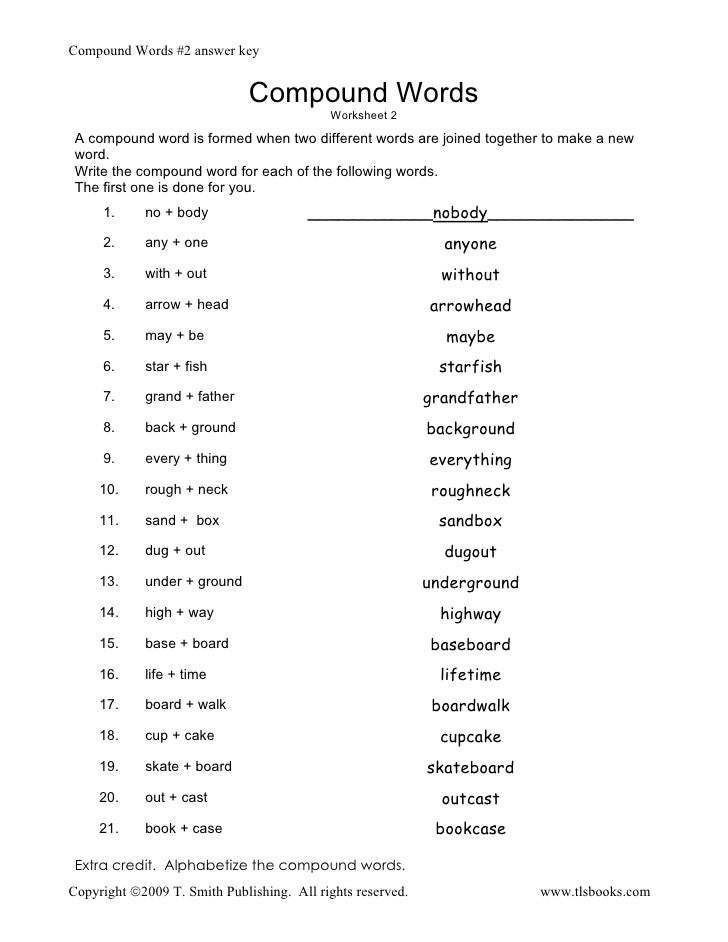
17. Realtor
It is difficult to avoid confusion with the word realtor. Office programs do not underline it in red in any spelling, the “Russian Guild of Realtors” insists on the letter “e” in its name, and even the authors of dictionaries cannot come to a consensus. And yet, in the most authoritative Russian spelling dictionary of the Russian Academy of Sciences, edited by Lopatin, the form “realtor” is fixed, it is better to stick to it.
18. Registration
The check word "register" will help you find out which letter is hidden in the place of an unstressed vowel, and will not allow you to write "registration" incorrectly.
19. Gynecologist
Gynecologist is not related to the word "gene", but is very closely related to the Greek "gyneka" - "woman".
20. Gastarbeiter
Remembering how the word "guest worker" is written is simple: in German gastarbeiter consists of two parts: gast - "guest" and arbeiter - "worker".
21.
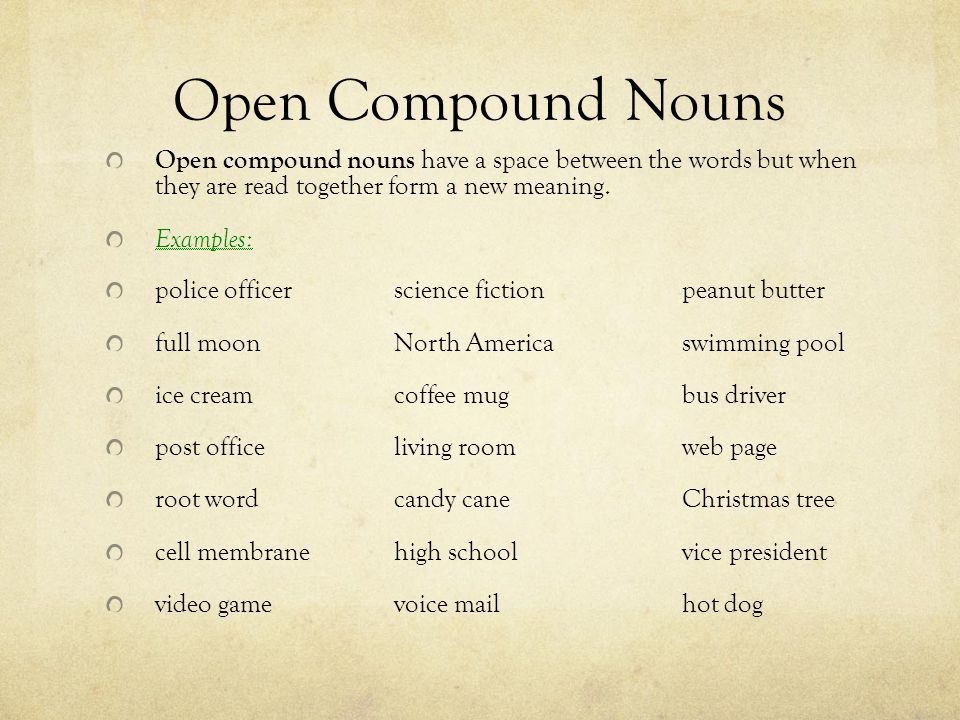 Colander
Colander Another word from the German language, where the letters tend to get mixed up. "Colander" comes from durchschlagen, which breaks down into durch - "through", "through" and schlagen - "hit". But if the etymology does not help to remember the correct order of the letters, you can go the associative way, especially since the word is so consonant with a popular curse word.
22. Calories
The word "calorie" was borrowed from French. Calorie entered the Russian language practically unchanged, there are no double consonants in it.
23. Vinaigrette
The name of the salad comes from the French vinaigre - "vinegar", and it - from the word vin - "wine". This makes it easier to remember how to properly describe the vegetable mixture. As for the second vowel in a word, it is enough to remember that it does not coincide with the first. Then you will write "vinaigrette" without a single mistake.
24. Shopping
In English, shopping is spelled with a double consonant, and many want to transfer the two "p" and into Russian.


